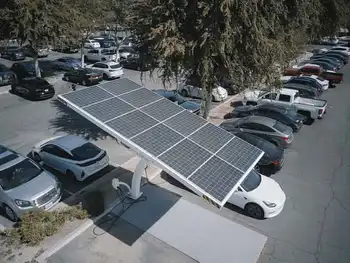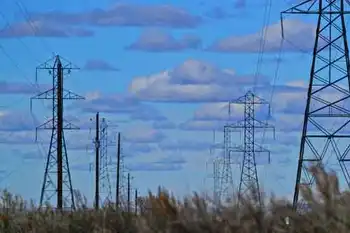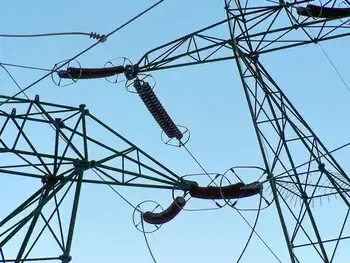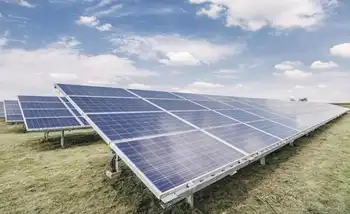Maple Ridge Lithium-Ion Battery Plant will be a $1B E-One Moli clean-tech facility in Canada, manufacturing high-performance cells for tools and devices, with federal and provincial funding, creating 450 jobs and boosting battery supply chains.
Key Points
A $1B E-One Moli facility in B.C. producing lithium-ion cells, backed by federal and provincial funding.
✅ $204.5M federal and up to $80M B.C. support committed
✅ E-One Moli to create 450 skilled jobs in Maple Ridge
✅ High-performance cells for tools, medical devices, and equipment
A lithium-ion battery cell production plant costing more than $1 billion will be built in Maple Ridge, B.C., Prime Minister Justin Trudeau and Premier David Eby jointly announced on Tuesday.
Trudeau and Eby say the new E-One Moli facility will bolster Canada's role as a global leader in clean technology, as recent investments in Quebec's EV battery assembly illustrate today.
It will be the largest factory in Canada to manufacture such high-performance batteries, Trudeau said during the announcement, amid other developments such as a new plant in the Niagara Region supporting EV growth.
The B.C. government will contribute up to $80 million, while the federal government plans to contribute up to $204.5 million to the project. E-One Moli and private sources will supply the rest of the funding.
Trudeau said B.C. has long been known for its innovation in the clean-technology sector, and securing the clean battery manufacturing project, alongside Northvolt's project near Montreal, will build on that expertise.
"The world is looking to Canada. When we support projects like E-One Moli's new facility in Maple Ridge, we bolster Canada's role as a global clean-tech leader, create good jobs and help keep our air clean," he said.
"This is the future we are building together, every single day. Climate policy is economic policy."
Nelson Chang, chairman of E-One Moli Energy, said the company has always been committed to innovation and creativity as creator of the world's first commercialized lithium-metal battery.
E-One Moli has been operating a plant in Maple Ridge since 1990. Its parent company, Taiwan Cement Corp., is based in Taiwan.
"We believe that human freedom is a chance for us to do good for others and appreciate life's fleeing nature, to leave a positive impact on the world," Chang said.
"We believe that [carbon dioxide] reduction is absolutely the key to success for all future businesses," he said.
The new plant will produce high-performance lithium-cell batteries found in numerous products, including vacuums, medical devices, and power and gardening tools, aligning with B.C.'s grid development and job plans already underway, and is expected to create 450 jobs, making E-One Moli the largest private-sector employer in Maple Ridge.
Eby said every industry needs to find ways to reduce their carbon footprint to ensure they have a prosperous future and every province should do the same, with resource plays like Alberta's lithium supporting the EV supply chain today.
It's the responsible thing to do given the record wildfires, extreme heat, and atmospheric rivers that caused catastrophic flooding in B.C., he said, with large-scale battery storage in southwestern Ontario helping grid reliability.
"We know that this is what we have to do. The people who suggest that we have to accept that as the future and stop taking action are simply wrong."
Trudeau, Eby and Chang toured the existing plant in Maple Ridge, east of Vancouver, before making the announcement.
The prime minister wove his way around several machines and apologized to technicians about the commotion his visit was creating.
The Canadian Taxpayers Federation criticized the federal and B.C. governments for the announcement, saying in a statement the multimillion-dollar handout to the battery firm will cost taxpayers hundreds of thousands of dollars for each job.
Federation director Franco Terrazzano said the Trudeau government has recently given "buckets of cash" to corporations such as Volkswagen, Stellantis, the Ford Motor Company and Northvolt.
"Instead of raising taxes on ordinary Canadians and handing out corporate welfare, governments should be cutting red tape and taxes to grow the economy," said Terrazzano.
Construction is expected to start next June, as EV assembly deals put Canada in the race, and the company plans for the facility to be fully operational in 2028.
Related News












